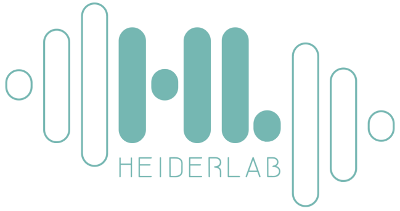CORona Drug InTEractions database
Combined deep learning and molecular docking simulations approach identifies potentially effective FDA approved drugs for repurposing against SARS-CoV-2.
Anwaar, Muhammad U.Adnan, FarjadAbro, AsmaKhan, Rayyan A.Rehman, Asad U.Osama, MuhammadRainville, ChristopherKumar, SureshSterner, DavidJaved, SaadJamal, Syed B.Baig, AhmadullahShabbir, Muhammad R.Ahsan, WasehButt, Tauseef R.Assir, Muhammad Z.
Abstract
The ongoing pandemic of Coronavirus Disease 2019 (COVID-19) has posed a serious threat to global public health. Drug repurposing is a time-efficient approach to finding effective drugs against SARS-CoV-2 in this emergency. Here, we present a robust experimental design combining deep learning with molecular docking experiments to identify the most promising candidates from the list of FDA-approved drugs that can be repurposed to treat COVID-19. We have employed a deep learning-based Drug Target Interaction (DTI) model, called DeepDTA, with few improvements to predict drug-protein binding affinities, represented as KIBA scores, for 2440 FDA-approved and 8168 investigational drugs against 24 SARS-CoV-2 viral proteins. FDA-approved drugs with the highest KIBA scores were selected for molecular docking simulations. We ran around 50,000 docking simulations for 168 selected drugs against 285 total predicted and/or experimentally proven active sites of all 24 SARS-CoV-2 viral proteins. A list of 49 most promising FDA-approved drugs with the best consensus KIBA scores and binding affinity values against selected SARS-CoV-2 viral proteins was generated. Most importantly, 16 drugs including anidulafungin, velpatasvir, glecaprevir, rifapentine, flavin adenine dinucleotide (FAD), terlipressin, and selinexor demonstrated the highest predicted inhibitory potential against key SARS-CoV-2 viral proteins. We further measured the inhibitory activity of 5 compounds (rifapentine, velpatasvir, glecaprevir, anidulafungin, and FAD disodium) on SARS-CoV-2 PLpro using Ubiquitin-Rhodamine 110 Gly fluorescent intensity assay. The highest inhibition of PLpro activity was seen with rifapentine (IC50: 15.18 μM) and FAD disodium (IC50: 12.39 μM), the drugs with high predicted KIBA scores and binding affinities.
Source: PMC
Related molecules
Related interactions
| Target | Target affiliation | Drug | Type | Result |
|---|---|---|---|---|
| Target | Target affiliation | Drug | Type | Result |
| Name | Synonyms | Genes | Origin |
|---|---|---|---|
| Name | Synonyms | Genes | Origin |
| Name | Synonyms | PubChem | DrugBank | RCSB PDB | ATC |
|---|---|---|---|---|---|
| Name | Synonyms | PubChem | DrugBank | RCSB PDB | ATC |
| Title | Authors | DOI | Source | Article type | Date |
|---|---|---|---|---|---|
| Title | Authors | DOI | Source | Article type | Date |
| Title | Status | Phases | Start Date | Prim. Comp. Date | Comp. Date | First Post. Date |
|---|---|---|---|---|---|---|
| Title | Status | Phases | Start Date | Prim. Comp. Date | Comp. Date | First Post. Date |
CORDITE (CORona Drug InTEractions database) collects and aggregates data from PubMed, MedRxiv, BioRxiv, ChemRxiv and PMC for SARS-CoV-2. Its main focus is set on drug interactions either addressing viral proteins or human proteins that could be used to treat COVID. It collects and provides up-to-date information on computational predictions, in vitro, as well as in vivo study data.
The information provided is for research only and we cannot guarantee the correctness of the data.
Please contact dominik.heider@uni-muenster.de for further information.
Programmable access
There is an open API for access programmatically to the database. The API will print a JSON output:
- Interactions
https://cordite-api.uni-muenster.de/api.php?action=list&table=interaction
- Targets
https://cordite-api.uni-muenster.de/api.php?action=list&table=target
- Drugs
https://cordite-api.uni-muenster.de/api.php?action=list&table=drug
- Publications
https://cordite-api.uni-muenster.de/api.php?action=list&table=publication
- Clinical trials
https://cordite-api.uni-muenster.de/api.php?action=list&table=clinical_trial

